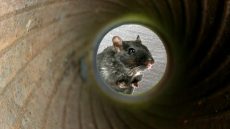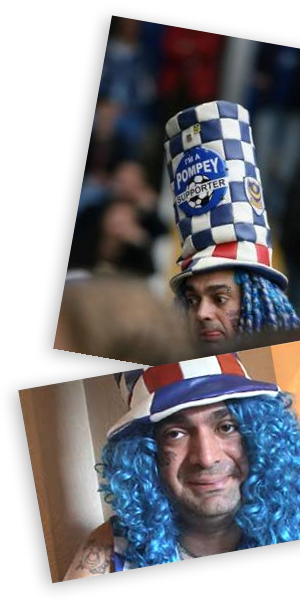RealityBites specialises in telling real-life stories that unlock Christian faith, get people thinking about Jesus and highlight how different people understand the world around them, to help us to understand our own worldviews.
Books and courses
-
 Slave Chronicles and Dangerous BeliefsPrice range: £5.00 through £30.00
Slave Chronicles and Dangerous BeliefsPrice range: £5.00 through £30.00 -
 The Spy, the Rat and the Bed of Nails£8.99
The Spy, the Rat and the Bed of Nails£8.99 -
 Subversive Questions course£10.00
Subversive Questions course£10.00 -
 Story course£40.00
Story course£40.00
Windows on Worldviews
Our innovative free video resource designed to support GCSE and A-Level Philosophy, Ethics and Religious Studies students and their teachers to explore popular aspects of non-religious beliefs and worldviews, and the philosophical roots underpinning them.
Storytelling tips
Top Tips for Telling Stories:
- Keep it visual: people love intriguing photos.
- Bring in humour and touches of eccentricity.
- Don’t be cheesy: allow the Christian content to be natural and intrinsic to the stories.
- Be flexible: the story could take five or twenty minutes Sometimes it is appropriate to use scripture, other times it isn’t.
- Learn from Jesus’ parables. Sometimes it’s great to be enigmatic and understated, allowing people to ‘get there’ on their own.
- Be interesting: find stories that inspire and excite you – you will communicate these with more passion and listeners will be more captivated.
Real-life stories: unlocking Christian faith
Here are some real-life stories and the worldviews they reveal.
The Story

John Westwood is the most fanatical football fan in England. At his home in Portsmouth, his lounge has become a shrine to his beloved god. Everything is branded with the badge of Portsmouth Football Club; the cushions, the teddy bears, the curtains, the wallpaper and even the carpets. When worshipping at Portsmouth’s stadium Fratton Park, John’s appearance is always flamboyant and eccentric. He wears an extended top hat, a blue wig and a checked waistcoat. On his chest there is a tattoo that declares his faith: “I’m Portsmouth till I die!”
In 1989 he changed his name, by deed poll, from John Anthony Westwood to John Anthony Portsmouth Football Club Westwood. Sadly his wife and children have left him and his finances are in a complete mess. John has sacrificed everything to his false god.
Application of the story
God loves football, but he doesn’t want us to worship football. If we read Romans 1:25 we become aware that worshipping rats, football or ‘economic growth’ is very harmful for human-beings. Jesus contended that people could worship money (Matthew 6:24); Paul argued that some people worship their stomachs (Philippians 3:19); the prophet Habakkuk asserted that the Babylonians worshipped power (Habakuk 1:11). Here we have a much broader and richer understanding of religion.
John Anthony Portsmouth Football Club Westwood understands this only too well. He knows that he is into religion. He knows that he has made Pompey his god. John is a person who sacrifices on a daily basis to his pagan god. What does John sacrifice? His marriage, his children and his money. All sacrificed on the altar of his idolatry.
Worldview and the story
How does Big John answer the five big questions?

Where am I?
I am living in a world of football. Nothing else really exists. Maybe a few books and a few houses, but the really important stuff is football and, of course, the greatest team on earth is Portsmouth.

Who am I?
I am a devoted fan of the Portsmouth football team. My name is John Anthony Portsmouth Football Club Westwood. Even my blue budgies are named after the club. I am prepared to make every sacrifice for my goddess.

What’s gone wrong?
Many people do not support and worship Pompey. They support other teams like Arsenal and Southampton. Sometimes relationships with spouses and children get in the way of my faithful service of my goddess. Sometimes I do not have sufficient funds to follow her all the time.

What’s the solution?
If only everyone would follow Pompey, life would be sweet. If only we could win every honour in the game. Silverware galore for Pompey. European champions and English champions. Let us worship our goddess and heaven will come to earth.

What happens when I die?
Not really sure about this. We will probably rot and be eaten by worms but if there is a heaven, it will be a world where Pompey always win.
The story

This heart-warming story took place in 2006 in north east Canada. The indigenous Inuit people were very upset with the white Canadian community. There had been a lot of ill-feeling and ‘argy bargy’ between the two communities. The Inuit were very unhappy about the poor stewardship of their traditional hunting lands. They blamed the white Canadian community.
The Inuit began to humble themselves and repent for the bitterness and rage they felt towards the white settlers. And the white posse joined in. They decided to take communion together and there was a lot of repentance and forgiveness was freely shared.
Two days later 15,000 caribou turned up at the precise place where the communion service had taken place. Everyone in the nearby town got to hear about this ‘nature’ miracle. The Inuit have also seen whales coming back after these ‘healing the land’ ceremonies.
Application of the story
This story helps us to understand the liberating power of the death of Jesus. When we take communion we are reminding ourselves that Jesus lived and died in our place. Study Mark 14:22-25.
Further to this the kingdom of God can bring healing and reconciliation not only to individual believers but to entire communities and even to the animal kingdom. The gospel of King Jesus brings forgiveness and healing to the entire creation. Mark helped us to understand this when he wrote that – Jesus said to them, “Go into all the world and preach the good news to all creation.” (Mark 16:15).
Worldview and the story
How might the caribou answer the five big questions? Their ‘answer’ helps us to understand more about the gospel of the kingdom.

Where are we?
We are living in God’s most bodacious world. It’s a cracker. Our close friends the reindeer agree with us that the Lord has provided us with delicious grass and superb drinking water.

Who are we?
We are posh deer and we sport impressive antlers. We are ruminants and we normally eat lichens, sedges and grasses. We have no interest in poetry or philosophy.

What’s gone wrong?
The creatures called human-beings who were supposed to look after us and keep us in line have rebelled against the Lord. It’s all gone pear-shaped.

What’s the solution?
The reindeer who are brighter than us have told us that King Jesus has arrived and has proclaimed His kingdom rule. If humans get in line and obey him, things will get much better both for us and the entire creation.

What will happen to us after we die?
Frankly we don’t know but we are confident that when heaven comes down to earth (Revelation 21) our enemies the wolves will be buddies with the lambs and that can’t be all bad.
The Story
In 1867 Fijian cannibals murdered, cooked and ate an English missionary. A contemporary cannibal stated that “we ate everything but his boots”. The descendants of these cannibals have now asked the descendants of the Rev Thomas Baker to forgive them.
This act of repentance and others like it have led to an amazing revival in Fiji. Communities have experienced transformation and the creation itself is being renewed and healed. Tremendous quantities of fish are returning to once barren waters. Fruit and vegetables are growing in abundance and unprecedented size. There are numerous eyewitness accounts of these ‘nature miracles’.
Application of the story
All kinds of issues emerge from this story. How did cannibals cook their victims? Were the missionaries intolerant when they told the cannibals to love their enemies rather than eat them? What exactly is repentance? What was the worldview of the indigenous Fijians? And is God angry when we sin by having our neighbours (literally) for lunch? The gospel story of Jesus comes alive when we contrast it with the cannibal story. Here is a simple way of comparing the two stories:
Worldview and the story
Fijian Cannibal Worldview

Where am I?
I am living in a world created by the gods. I am surrounded by the spirits of my ancestors.
Christian Worldview of Former Fijian Cannibal

Where am I?
I am living in a wonderful world created by a loving God. This creation is very good and Fiji has the best beaches and tropical fish in the world. Far better than Spain.

Who am I?
I am a fierce Fijian warrior and I worship the fish-god Dakuwaqa. I must appease the gods and the spirits of the dead.

Who am I?
I am a Fijian Christian made in God’s image. I used to be a cannibal but now I am trying to love God, my neighbour and Fiji.

What’s the problem?
Sometimes we are attacked by enemy tribes who want to eat us. Sometimes we do not offer enough human flesh to the gods. Sometimes we do things that are ‘taboo’. These things are forbidden.

What’s the problem?
Tragically many of us have rebelled against God. Violence and cannibalism have taken over. We are held captive by pagan gods, taboos and petty superstitions.

What’s the solution?
We must worship our gods and ancestors faithfully. We must always be ready for battle and not allow our enemies to defeat us and then humiliate us by cooking and eating our flesh.

What’s the solution ?
We must turn away from false fish-gods and idols and follow Jesus, the true King and Saviour. He has died for all cannibals and sinners. He has taken away our sins. He is the Prince of Peace.

What happens when I die?
When I die my soul will float away to the land of the spirits. This journey is dangerous because the evil god Ravuyalo will try to club me on the way. Help!

What happens when I die?
When I die I will be with Jesus in paradise. At the resurrection I will receive a superb new body and live in a restored creation. Cannibalism and all evil will no longer exist.
Worldviews are best understood as the dreams, longings and ambitions that get people out of bed in the morning. For some people it is naked profit. Still others crave status and celebrity. Some Buddhists are desperate to avoid reincarnation. For James Bond it’s the destruction of Her Majesty’s enemies. Worldviews are the ‘spectacles behind our eyes’ – we look at the world through them, not at them. Worldviews can be compared to secret agents: often they are invisible and elusive.
Consider the billion pound challenge: how would you live your life if you suddenly got this huge wad? Would you spend the rest of your life consuming Aston Martins, Omega watches, Bollinger champagne, Beluga caviar and gorgeous women? Or would you dedicate your considerable resources to ending the slave trade? Your answer to this question tells us what you really believe. Your lifestyle reveals your worldview.
Every worldview tells a story. These stories function as maps that guide the way we live. They captivate our imaginations and our spending habits. Worldviews are communal and they are grounded in faith. What is faith? It is the way we answer five basic questions facing everyone:

Where are we?
What is the nature of the world and universe we live in?

Who are we?
What is the nature, task and purpose of human beings?

What’s gone wrong?
What is the basic obstacle that keeps us from finding fulfilment: how do I understand evil?

What’s the solution?
How is it possible to overcome this hindrance to fulfilment: how do I find salvation?

What will happen to us after we die?
For example, will I just rot in the ground or will I be waiting for the resurrection of my body?
For James Bond, the answers might look like this:

Where am I?
I am living in a world full of gadgets, helicopters, booby-trapped briefcases, beautiful women, luxury and enemy spies.

Who am I?
I am Bond, James Bond. I am a supremely confident MI6 agent. I am 007 licensed to kill. I have complete confidence in my ability to achieve all of my assignments. All women find me extremely attractive.

What’s gone wrong?
Sometimes I lack complete control over nature and other people. Sometimes enemy agents refuse to be killed instantly. Sometimes I am attacked by huge crocodiles and sharks.

What’s the solution?
I will trust in science and technology. Q will help me here. I have complete confidence in my ability to conquer my enemies and seduce all of the attractive women. They can’t resist me.

What will happen to me after I die?
It’s almost impossible to kill me, but after I die at home in bed, I will rot and be eaten by worms.
The Big Story of the Bible
Janet, a 12 year-old girl, was asked what she thought the Bible was all about. Her answer went like this: “The Bible tells me about Jesus and how I can get to heaven when I die.” Was she right? Had she understood the story that God wants us to understand? Is this the story that He wants us to live in?
Think for a few moments – how would you summarise the biblical story? Would you agree with Janet or has she missed something out?
The Bible can be understood as a drama in six acts:
- Act 1: Creation – God establishes His kingdom
- Act 2: Fall – Rebellion in the kingdom
- Act 3: Redemption initiated – The King chooses Israel
- Act 4: Redemption accomplished – The King himself comes
- Act 5: Redemption proclaimed – Spreading the kingdom
- Act 6: Glorious renewal – The return of the King
Take your seats, ladies and gentlemen – the curtain is about to rise…
